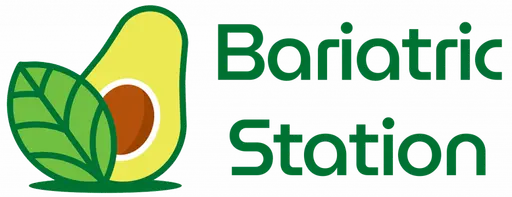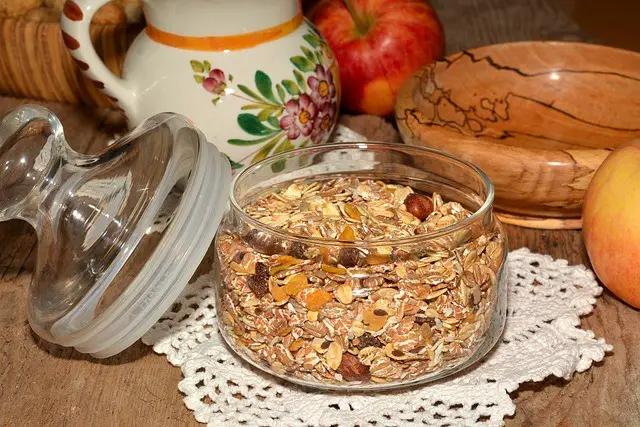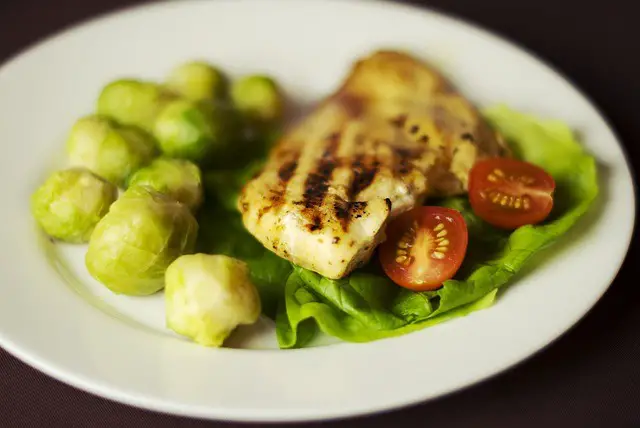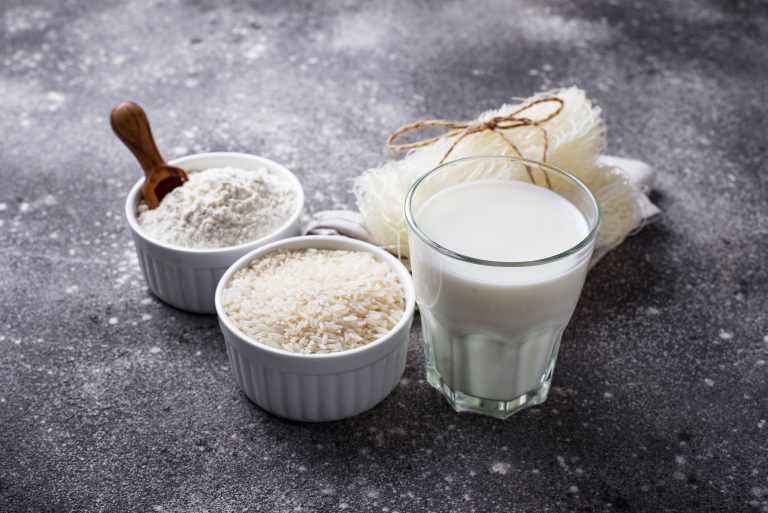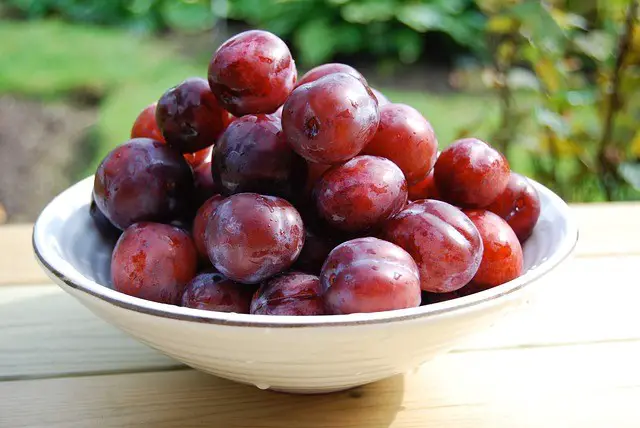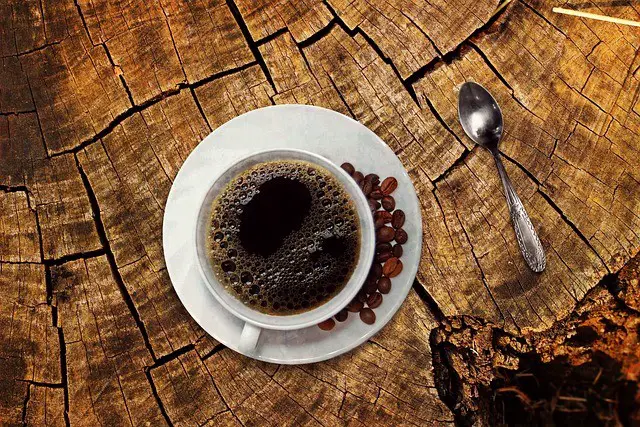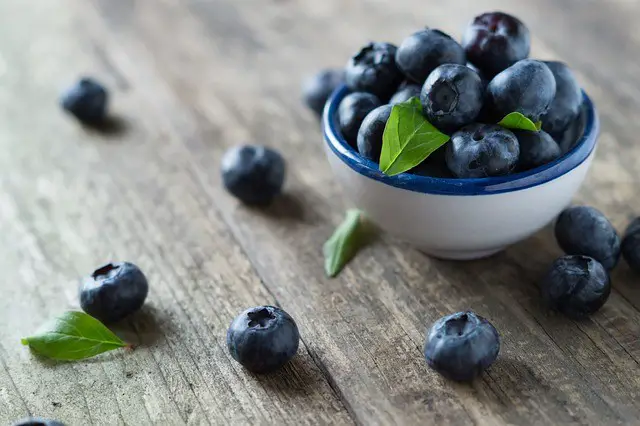Having a nutritious meal is important to maintain optimum health. Oatmeal is a go-to breakfast for many reasons. It is not only a healthy whole grain choice but also convenient (instant oatmeal) on those busy mornings when you don’t have time to whip yourself something.
However, we know that on a low-carb or keto diet, there are foods, which although healthy, may not make the cut. You may be looking for a ketogenic food that is easy to make yet delicious, to add to your keto breakfast recipes. Are you wondering if oatmeal is keto? Let’s see how much carb in oatmeal and whether you can have it on a low-carb diet.
How Much Carb in Oatmeal?
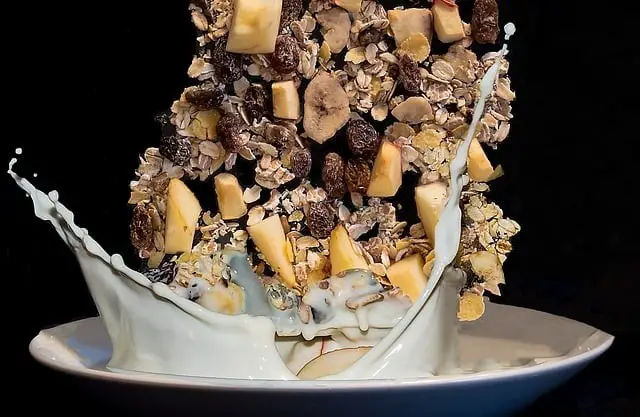
When talking about carbs, there are good carbs and bad carbs. It’s not only about the number of carbs in your food but also the type of carb it contains. Carbohydrates can be categorized as simple carbohydrates or complex carbohydrates.
Complex carbohydrates are the kind that takes longer to digest and absorb and do not spike blood sugar levels. Simple carbs, on the other hand, are easily digested and absorbed into the bloodstream, making it easy to spike blood sugar levels.
The types of carbs in foods are starch, sugar, and dietary fiber. Starch and sugar are digestible carbs that can contribute to your net carb intake. Dietary fiber is complex carbs that are indigestible and do not cause a spike in blood sugar.
How much carb in oatmeal?
Carbs in Oats per 100 g
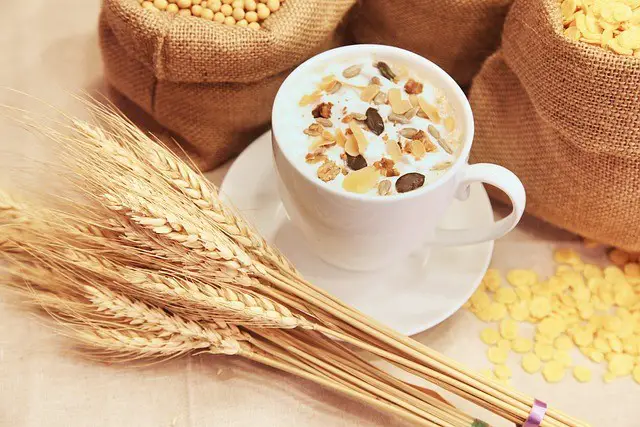
There are different types of oats with different amounts of carbs per cup. You can choose from rolled oatmeal and steel-cut oatmeal. Rolled oats include old-fashioned oats, quick-cooking oats, and instant oats.
Steel oats go through less processing compared to rolled oats. In 100 g of steel-cut oats, you will get 69.8 grams of carbs. Whereas, in 100 g of old-fashioned rolled oats, you will get 68.7 grams of carbohydrates. How about we dive into the nitty-gritty of different types of carbs to know the grams of carbohydrates in oatmeal that contribute to carb intake?
Starch
Fun fact, 66% of oats are carbohydrates, and 85% of this is starch. A 100 g of steel-cut oats contains 54.9 grams of starch, while in a similar serving of old-fashioned rolled oats, you will get 53.8 g of starch.
It is important to mention that the kind of starch in oats is different from that in other grains because of its higher fat content and viscosity which allows it to hold lots of water.
When talking about starch, I also have to mention that it can be rapidly digested, slowly digested, or resistant starch. Rapidly digested starch makes up 7% of starch in oats and it is easily metabolized into glucose for absorption. Slowly digested starch makes up 22% of starch in oatmeal and it takes a longer time to be digested and absorbed. Finally, resistant starch like dietary fiber contributes to 25% of the starch in oats, and this kind is indigestible and is used as food by probiotics.
Sugar
Only 1% of the carbohydrate in oats is sugars. Oatmeal is naturally low in sugar.
Dietary Fiber
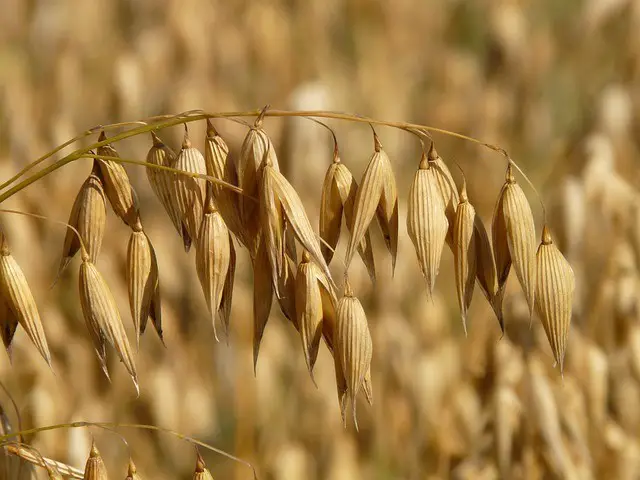
Oats are a great source of fiber, with 11% of the total carbs being fiber. A 100 g serving of steel-cut oats will provide you with 12 grams of fiber, while rolled oats give you 10.4 grams of fiber.
Dietary fiber is categorized into soluble fiber or insoluble fiber. The role of the former is to control cholesterol levels while the latter helps prevents constipation. Oats have a higher soluble fiber content. A 100 g serving of steel-cut oats contains 3.62 g of beta glucan, while the same serving of rolled oats will provide you with 3.82 g of beta glucan. Beta-glucan is a soluble fiber.
You will also get some insoluble fibers in oats. The high soluble fiber content is what leads to the increased fullness and appetite suppression effects of oatmeal. A high intake of fiber can be beneficial for appetite control and to regulate blood sugar levels.
On a low-carb diet, we usually pay attention to the amount of digestible carbs that is net carbs. Fiber is an indigestible carbohydrate. To find your net carbs, you will subtract fiber from total carbs. Do oats being high in fiber make them suitable to fit in a low-carb diet?
Are Oats Keto?
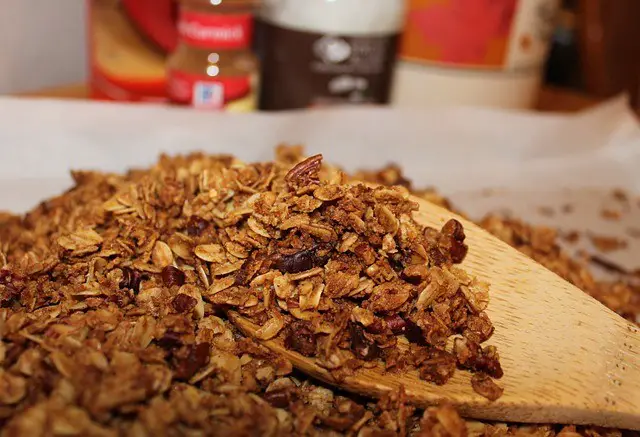
Unfortunately, no. Considering the net carbs in oats, their carb count will exceed the daily carb allowance on a low-carb diet. The daily carb allowance on the keto diet is 20 to 50 grams of carbohydrates.
A 100 g serving size of raw steel-cut oats has 57.8 g of net carbs, while rolled oats have 58.3 g of net carbs. Including oats in your daily food choices will have you exceeding the recommended daily carb intake on keto.
Taking a look at how oats affect blood sugar levels, they are classified as medium to high glycemic index foods depending on the type of oats and method of preparation. Instant oats have a glycemic index of 79, while oats cooked in water have a glycemic index of 60. The glycemic load of oats is 36 when measured as oat flakes but the glycemic load is 9 for cooked oats on water. Clearly, they can spike sugar levels and stop ketosis.
Protein in Oats per 100 g
Besides oats and intake of carbohydrates, some people wonder if they are carbs or protein. Compared to other grains, oats are a good source of plant-based protein at 11-17% of dry weight.
A 100 g serving of raw steel-cut oats contains 12 grams of protein, while in the rolled variety you will get 13.5 grams of protein. Avenalin is the protein found in the highest amounts in oats. It is found in this grain alone and in legumes as well. Since it has a high in grams of protein than other grains, most people wonder if it can be classified as a protein.
Oats Nutritional Value per 100 g
You know oats are high in complex carbs and are a great source of protein. But besides their carb content and that they don’t fit into a low-carb diet, what essential nutrients are in a bowl of oats that contribute to its nutritional benefits?
In 100 g of cooked oats (cooked with water) you will get:
- Energy: 71 kcals
- Protein: 2.54 grams of protein
- Total fat: 1.52 grams of fat
- Carbohydrate: 12 grams of carbohydrate
- Fiber: 1.7 grams of fiber
- Sugar: 2.7 grams of sugar
- Magnesium: 27 mg
- Phosphorus: 77 mg
- Potassium: 70 mg
- Manganese: 0.58 mg
- Copper: 0.074 mg
- Zinc: 1 mg
- Selenium: 5.4 µg
- Iron: 0.9 mg
- Vitamin B1: 0.076 mg
Checking out the nutritional values of oats, it is clear that it is a good source of vitamin and minerals that have a key role in the body. Their high potassium, magnesium, zinc, copper, and manganese content make them a nutritious food. Besides this, they are naturally gluten-free and can be tolerated by individuals with Celiac disease.
But remember, despite its nutritional content, the carb content of this grain disqualifies it as a keto-nutritious breakfast.
Calories in 100 gm Oats with Milk
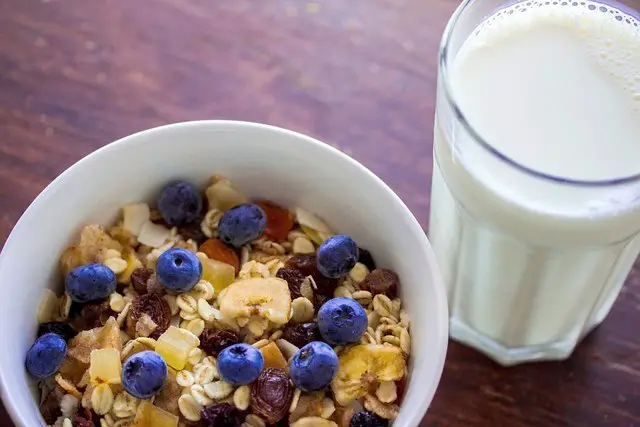
Oats are naturally low-calorie foods. However, you will be increasing calories when you add milk to your grains. In addition, you will be adding extra carbs to your cereal bowl when you pour a cup of milk into cooked oatmeal. Milk is not keto-friendly, so it is best avoided on your carb-restricted weight-loss diet.
According to the USDA, 100 g of oatmeal prepared with whole milk provides you with 166 kcals.
Oatmeal Substitutes on Keto Diet
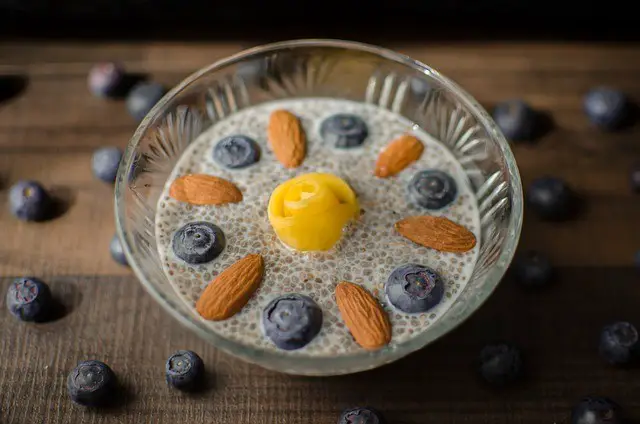
Oatmeal has a high carb content, and adding fresh fruits, milk, and brown sugar to your bowl of oatmeal will only increase your carbohydrate intake. What can you substitute your bowl of oatmeal with on a low-carb diet? Here are some replacements for this high-carb breakfast option:
- Cauliflower rice porridge: This is a great low-carb option you can make for breakfast. For a more savory dish, add spice and beef broth to boost flavor and fat and protein content.
- Chia seed pudding: mix coconut milk or almond milk with your chia seeds and refrigerate.
- Flaxseed porridge: Just like chia seeds, these can be a good oatmeal alternative. Microwave them with almond or coconut milk for a few minutes and enjoy!
- Coconut flour porridge: Instead of oatmeal for your porridge, give coconut flour a shot! Rich in healthy fats and low in carbohydrates, this substitute can help you maintain a healthy weight.
The best low-carb oatmeal recipe is one that replaces oats with nuts and seeds. Another option would be blending berries like strawberries, blueberries, or blackberries with creamy cheese and almond milk.
Throw in some cinnamon or natural vanilla extract into your bowl for an explosion of flavors.
Take Away
Oatmeal is a nutritious food. However, when counting carbs for weight loss, it is not your best bet. Considering how much carb in oatmeal, it cannot be considered a keto food. The good news is, there are low-carb oatmeal recipes you can have on a keto diet that will keep you in ketosis and prevent weight gain.
Are you a big fan of oats for breakfast? Which of the substitutes above would you want to try? Remember to drop your recipes for low-carb oatmeal substitutes in the comments.
